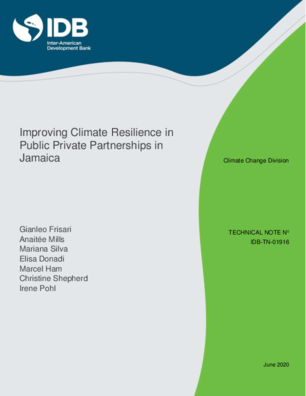Improving Climate Resilience in Public Private Partnerships in Jamaica
Date
Jun 2020
The need to consider climate change issues in the provision of infrastructure services through PPPs originates from two key observations: On one side, Jamaica like many small island states faces many risks associated with climate change. To safeguard against a future in which natural disasters and hazards may occur more frequently or with greater intensity due to climate change, the country seeks to ensure that its infrastructure stock can withstand such occurrences. At the same time, Jamaica has been seeking to develop and build its infrastructure with an increased role for the private sector, developing an effective Public Private Partnerships model that is well regarded in the region. As very long-dated contractual relationships, the success of PPPs is highly dependent on an accurate, sustainable and efficient distribution of risks and benefits between the public and private counterparts of the transaction risk distribution that can be perturbed significantly by climate change. Following the typical structure of a PPP process, from project identification to contract management, this report identifies several instruments and tools already used to address climate change issues in the context of Jamaica's infrastructure production albeit not always in a systematic way that could be integrated in the PPP process in a more institutionalized and standardized manner, identifying options for a low-cost and seamless implementation of a Resilient PPP model.




